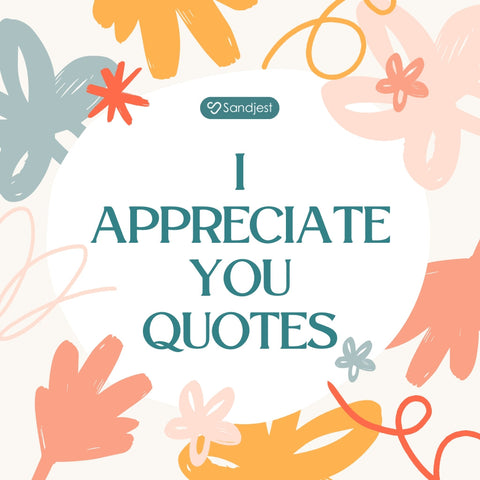270+ The Best Questions to Ask After Presentations
Table of Contents
Wondering how to spark meaningful discussions after your presentation? The right questions can encourage valuable feedback and audience interaction, making your message even more impactful.
If you’re looking for sample questions to ask after a presentation that inspire thoughtful discussions and actionable feedback, you’re in the right place. Dive in to make your Q&A sessions truly stand out!
Questions To Ask An Audience After A Presentation
Want to create a memorable connection with your audience? Asking questions after a presentation encourages meaningful discussions and helps you gauge their understanding. It’s an opportunity to ensure your message resonated while also learning from their perspectives. In this guide, we’ll explore how to engage effectively and keep the conversation flowing.

- What inspired you to choose this topic?
- Were there any concepts that you felt needed more clarification?
- What specific example did you find most relatable?
- Could you elaborate on a specific challenge you faced while researching this subject?
- How can we improve the delivery for a future audience?
- Did the presenter’s style keep you engaged throughout the session?
- Are there alternative viewpoints you considered when presenting this topic?
- Could you share a real-world example where these concepts have been applied?
- Were there any parts of your presentation you felt uncertain about?
- How do you suggest individuals begin applying the ideas you’ve discussed?
- Which part of the topic do you think deserves more attention in discussions?
- If you had more time, what additional details would you include?
- Were there any surprising insights you discovered during your preparation?
- Are there collaborative opportunities you envision in this area?
- What’s the next step after understanding the basics of your presentation?
- How would you adapt this presentation for a different audience?
- Were there any controversial aspects of your topic that you avoided?
- Can you suggest ways for individuals to explore this subject hands-on?
- Are there ongoing projects related to this presentation you’d like to share?
- How do you maintain engagement when presenting complex ideas?
Audience Connection Questions
Building a bond with your audience goes beyond delivering information. Thoughtful connection questions can open the floor to shared ideas, opinions, and emotions. We’ll share simple yet effective ways to create a dialogue that feels personal and impactful.

- Did you feel connected to the topic on a personal level?
- How did this presentation resonate with your current experiences?
- Was there a moment that made you reflect deeply?
- How do you think this presentation applies to your work or life?
- Did the presentation align with your personal interests or goals?
- What emotions did the session evoke for you?
- How relatable were the examples provided by the presenter?
- What motivated you to attend this particular session?
- How could the presentation better address your specific needs?
- Did the session leave you with any new perspectives?
- Did any part of the presentation challenge your beliefs or assumptions?
- Was there anything particularly relatable in the examples shared?
- How does this topic align with your interests or goals?
- Were there any parts where you felt especially engaged or inspired?
- What motivated you to attend this presentation?
- How well did the content connect to your expectations?
- What could we do to make this session more interactive?
- Did this presentation provide value to your personal or professional development?
- Did the delivery style help you feel connected to the message?
- Were the interactive elements of the session effective in keeping your interest?
- How did the presenter’s examples relate to your field of work?
- How did the session compare to other presentations you've attended?
- Were the visuals and materials helpful in holding your attention?
- Did the presenter address the key concerns you had about this topic?
- How would you rate the presentation's ability to connect with the audience?
- Was there a moment that felt particularly impactful?
Clarifying Questions
Sometimes, the best way to ensure clarity is to invite it. Clarifying questions help address uncertainties, refine takeaways, and encourage open conversations. Discover actionable strategies to encourage transparency and understanding with your audience.

- Could you elaborate on the main objective of the presentation?
- What does [specific term] mean in the context of your discussion?
- Can you clarify the connection between [concept A] and [concept B]?
- What was the significance of the example shared about [specific point]?
- Could you explain the reasoning behind [specific claim]?
- How does this concept differ from [another related concept]?
- Can you walk us through the process again for [specific topic]?
- What do you mean when you say [specific phrase]?
- Could you simplify the explanation for [technical term or idea]?
- Were there any assumptions made that might need further explanation?
- What alternatives were considered before concluding this solution?
- Could you break down the timeline mentioned for [specific event or plan]?
- How do the findings apply in a real-world scenario?
- What was the reasoning behind the chosen methodology?
- What key factors should we focus on when interpreting this data?
- How would you summarize the takeaway for [specific section]?
- Could you explain the metrics used to evaluate success?
- What resources did you rely on when forming this conclusion?
- How does this idea address the challenges mentioned earlier?
- Can you repeat the key steps for implementing this strategy?
- Can you reframe this idea in simpler terms for a broader audience?
- What is the main question this presentation aimed to answer?
- Can you elaborate on the data or statistics shared during the session?
- What assumptions were made in presenting this information?
- Can you provide an example to clarify [specific term]?
- How does this strategy differ from others in the same field?
- Could you outline the steps involved in implementing this idea?
- Can you revisit the process for [specific topic] to ensure understanding?
- How does [specific idea] relate to the larger context of the subject?
- Could you simplify the explanation for [technical term or concept]?
Understanding Questions
Great presentations spark curiosity and understanding. By asking targeted questions, you can assess how well your audience connected with the material. Let’s uncover ways to ensure everyone leaves with clear and meaningful takeaways.

- Could you summarize the key points in your own words?
- How would you explain the key ideas to someone unfamiliar with the topic?
- How well did the examples support the main arguments?
- Were there any concepts that seemed contradictory or unclear?
- What parts of the presentation would you like to review again?
- How do you think this session will influence your future decisions?
- How do the concepts discussed apply to your current situation?
- Were there any terms or ideas that need further explanation?
- How did the examples provided help clarify the topic?
- Can you explain how this information might be useful in your work?
- Was there a specific slide or section that stood out to you?
- How would you explain this concept to someone unfamiliar with the subject?
- Did the presentation address the issues you were expecting it to?
- Were there any surprising insights that challenged your assumptions?
- What do you think is the most actionable idea from the session?
- How confident do you feel about implementing what you’ve learned?
- How well did the session answer your initial questions?
- Did the examples provided align with your experiences?
- Which part of the session do you feel needs further elaboration?
- What was the most relatable point made during the talk?
- How well did the visuals help you understand the main ideas?
- How did this session change your understanding of the topic?
Self-Improvement Questions
Every presentation is a learning opportunity. Asking questions focused on self-improvement helps you refine your skills, connect better, and grow as a speaker. We’ll explore techniques to use audience feedback for continuous growth.

- What skills do you think you could improve based on this presentation?
- What’s one habit you could adopt to achieve better results?
- What’s one action you can take immediately to improve in this area?
- Are there resources or tools you could use to build on these ideas?
- What’s one small change you could make today for long-term benefits?
- How do you seek constructive feedback to improve your performance?
- What role does mentorship play in your self-improvement journey?
- What’s a past success that shows your ability to grow and adapt?
- What’s one key takeaway from this session that could impact your self-improvement plan?
- How do you manage setbacks or challenges during your growth journey?
- What inspires you to keep learning and developing?
- How do you identify areas for growth without becoming overwhelmed?
- How do you celebrate milestones in your self-improvement journey?
- What motivates you to stay committed to your long-term goals?
- How do you plan to apply the key takeaways from this session?
- What habits could you adopt to reinforce these ideas?
- How has this presentation motivated you to think differently about your goals?
- What areas of your work or life could benefit from this knowledge?
- What new strategies will you try based on today’s discussion?
- How can you measure progress in applying these concepts?
- How does this session inspire you to approach your work differently?
- How does this knowledge complement your existing skills?
- What resources will you explore next to build on what you’ve learned?
Questions To Ask Presenters After A Presentation
Not sure how to make the most of your post-presentation opportunity? Asking insightful questions to presenters can deepen your knowledge and foster engaging discussions. Here’s how to keep the conversation productive and impactful.

- How does your work compare to similar studies in the field?
- What’s the next step in advancing this topic?
- Are there any misconceptions about this topic you’d like to clarify?
- How do you address criticisms or differing opinions regarding your approach?
- How do you balance theoretical knowledge with practical application?
- What’s the most surprising finding you encountered during your research?
- Could you recommend resources for further exploration of this topic?
- How has feedback shaped your understanding of this subject?
- Are there any ethical considerations tied to this topic?
- Could you explain how this idea could benefit [specific industry or group]?
- What trends do you foresee influencing this area in the next few years?
- Are there collaborations or partnerships you’re pursuing related to this work?
- How do you determine the relevance of information in your research?
- Are there emerging opportunities for practical application in this area?
- How do you envision this field evolving over time?
- How do you ensure your information stays relevant and accurate?
- Are there alternative viewpoints you considered but didn’t include?
- Could you expand on the long-term implications of this idea?
- What tools or resources do you recommend for exploring this topic further?
- How does this topic intersect with other areas in your field?
Follow-Up Questions
Effective follow-up questions can keep the dialogue going long after the presentation ends. They encourage deeper insights and show your genuine interest. Learn how to ask questions that make a lasting impression.

- Could you provide more details on [specific point mentioned]?
- What inspired your conclusion on [specific topic]?
- How can the strategies discussed be adapted for [specific context]?
- What’s the best way to implement the ideas presented?
- Can you share additional examples to clarify [specific concept]?
- What challenges might arise when applying these concepts?
- How would you address concerns about [specific issue]?
- Are there alternative approaches to the methods you discussed?
- What updates do you anticipate on this topic in the near future?
- How does this connect with trends in [relevant field]?
- What feedback have you received on similar sessions?
- Are there opportunities for collaboration related to this topic?
- Could you provide a timeline for implementing [specific plan]?
- How do you address common challenges in this area?
- Can you share any case studies related to this topic?
- How do you recommend overcoming barriers in [specific situation]?
- Could you explain how this concept benefits [specific audience]?
- How would you adapt these strategies for a different audience?
- Could you revisit the point about [specific concept] for clarity?
- Are there potential risks associated with applying these methods?
- What inspired you to develop these ideas?
- How do these strategies align with broader industry trends?
- Can you summarize the most actionable steps from this presentation?
- Are there upcoming developments we should anticipate in this field?
- How does this topic evolve as new information emerges?
- Are there additional resources we should review for better understanding?
- What future sessions could build on this presentation?
- How do you recommend addressing challenges tied to this topic?
- What strategies would you prioritize from the presentation?
Critical Thinking Questions
Critical thinking questions elevate the discussion, encouraging analysis and new perspectives. By asking thought-provoking questions, you can inspire your audience to dive deeper into the topic. Discover how to use this approach effectively.

- What assumptions does this presentation rely on?
- What underlying assumptions support the main argument of this presentation?
- How would the conclusions change if different data were used?
- How could the outcomes change under different circumstances?
- What evidence supports the main argument presented?
- Are there any gaps in the reasoning or information provided?
- How might opposing viewpoints challenge this perspective?
- What are the long-term implications of the strategies discussed?
- How would you prioritize the ideas shared in this presentation?
- What unintended consequences could arise from applying these concepts?
- Are there any overlooked perspectives that could enhance understanding?
- How do the findings relate to current trends in the industry?
- What questions does this presentation leave unanswered?
- How would you approach this topic from a different angle?
- What additional research could further validate the conclusions?
- Are the examples provided representative of broader realities?
- How does the context affect the applicability of the ideas shared?
- What is the strongest counterargument to the main point?
- How might cultural or societal differences impact the implementation?
- What metrics could be used to evaluate the success of these strategies?
- How does this align with or contradict previous knowledge on the subject?
- Are the conclusions drawn here universally applicable, or context-specific?
- What risks could be associated with adopting the recommendations?
- How would you define success in applying these ideas?
- How does this presentation build on or diverge from other research?
- What trade-offs are involved in the approaches discussed?
- What ethical considerations arise from implementing these strategies?
- How do the key takeaways challenge conventional thinking?
- What additional insights would help in forming a well-rounded perspective?
- How do the presenter’s ideas compare to alternative viewpoints?
Practical Application Questions
The true value of a presentation lies in how its ideas can be applied. Practical questions help bridge theory and practice, making concepts actionable. Let’s explore examples to help you drive impactful conversations.

- Are there tools available to help execute these ideas effectively?
- What challenges might arise during implementation, and how can they be resolved?
- What resources are critical for ensuring success in this area?
- What timeline would be realistic for applying these ideas?
- Are there specific industries or fields where this concept works best?
- What are the first three steps to implementing this strategy?
- How does this concept integrate with existing workflows?
- What training or preparation is necessary for applying this strategy?
- How do you evaluate the results after implementation?
- Can this concept be scaled up or down for different contexts?
- How do you involve your team or colleagues in applying these ideas?
- What contingency plans are necessary for potential challenges?
- Are there potential risks in applying this strategy, and how can they be mitigated?
- What success stories highlight the effectiveness of this approach?
- How do you ensure sustainable results from applying these ideas?
- How can these concepts be applied to solve current challenges in your role?
- What steps would you prioritize to implement the ideas shared today?
- How does this approach align with existing workflows or strategies?
- What barriers might arise during implementation, and how can they be addressed?
- How would you adapt these ideas for a smaller or larger team?
- What tools could help streamline the application of these concepts?
- How can you measure success when applying these strategies?
- Are there case studies or examples that highlight successful implementation?
- How do these methods complement other strategies you currently use?
- What’s the timeline for seeing measurable results from these actions?
- How do you ensure consistency when applying these strategies across teams?
Questions To Ask After A Business Presentation
Business presentations thrive on clarity and actionable outcomes. Asking thoughtful questions ensures you understand the insights shared and how they align with your goals. Here’s a guide to fostering productive post-presentation discussions.

- How do the ideas presented align with our company goals?
- What’s the first step to implementing these recommendations?
- How can these insights improve current business processes?
- What resources are required to execute these ideas?
- How does this strategy compare to industry best practices?
- How can we involve stakeholders in this process effectively?
- What feedback has been received from other organizations about this strategy?
- How do these recommendations address our most pressing challenges?
- Are there case studies that demonstrate the success of these ideas?
- What potential benefits might we overlook in this strategy?
- How do we prioritize these actions given our current workload?
- What adjustments might be necessary to apply these ideas to our industry?
- How does this plan support long-term growth?
- Are there specific tools or software that complement this strategy?
- What’s the financial impact of implementing this approach?
- How do we mitigate challenges identified during the session?
- How will this strategy affect our relationship with customers or clients?
- What partnerships could help in achieving the goals outlined?
- Are there regulatory or compliance considerations tied to this strategy?
- What training might be needed for team members?
- How can we track progress over time for this initiative?
- How does this presentation align with our overall business goals?
- What immediate actions can we take to leverage the insights shared?
- How does this approach compare to current industry trends?
- What are the measurable outcomes we should aim for?
- How does this strategy address existing challenges in our business?
- What additional resources or support do we need to implement these ideas?
- How do we ensure alignment across departments when applying this plan?
- What feedback have we received from similar initiatives in the past?
- How does this strategy help us achieve long-term growth?
- What’s the role of each team in executing these recommendations?
- How do we track the effectiveness of this approach over time?
Questions To Ask Students After A Presentation
Student presentations are a chance to nurture critical thinking and self-expression. Asking the right questions encourages reflection and deeper understanding. Explore practical ideas for creating a supportive and engaging learning environment.

- Were there any terms or concepts you found confusing?
- How could this information be applied in real life?
- What additional examples would help clarify this topic?
- How do you think this subject is relevant to your future goals?
- How well did the visuals help you understand the material?
- How did the presentation change your perspective on this topic?
- What part of the session was the easiest to understand?
- What part was the most challenging to follow?
- How could the presentation have been improved for better understanding?
- How confident do you feel discussing this topic with others?
- What new skills or knowledge did this session give you?
- What questions do you think others might have about this topic?
- How did the presenter keep your attention during the session?
- What resources could help you explore this subject further?
- What connections can you make between this topic and real-world issues?
- How does this topic relate to what you’re studying in other subjects?
- What was your favorite example or case study mentioned?
- How confident are you in discussing this topic with others?
- What additional resources could help you understand this subject better?
- How did the presentation challenge your previous understanding of the topic?
Feedback Questions To Ask After A Presentation
Feedback is essential for growth. Asking well-structured questions after a presentation ensures you get meaningful insights that help you improve. Dive into survey questions to ask after a presentation to collect feedback that’s clear, constructive, and actionable.

- Did the visuals effectively support the message?
- What was the most engaging part of the presentation?
- Were there any sections that felt too rushed or too slow?
- How well did the examples connect with the topic?
- Was the presentation length appropriate for the content?
- How confident did the presenter seem about the material?
- Were there any areas where more detail would have been helpful?
- How effective was the presenter in addressing audience questions?
- How did the pacing of the presentation affect your understanding?
- Was the tone of the session appropriate for the topic?
- What’s one takeaway you think could have been emphasized more?
- What additional resources could have enhanced the presentation?
- Were the objectives of the session clearly communicated?
- Did the content meet your expectations based on the topic?
- Were there any points that felt redundant or unnecessary?
- Did the session inspire you to learn more about the topic?
- What’s the most valuable suggestion you’d offer for improvement?
- How could the presentation have been more interactive or engaging?
- Were there any sections that felt too detailed or overwhelming?
- How effective were the visuals in supporting the key messages?
- What’s one area where the presentation could be improved?
- How well did the presenter address questions from the audience?
- Were there any concepts that needed more detailed explanations?
- What’s one takeaway you’d like emphasized more in future sessions?
- How clear were the main points presented during the session?
- Was the pacing of the presentation appropriate for understanding the material?
Conclusion
Engaging your audience doesn’t end when the presentation is over—it begins with the questions you ask. Thoughtful prompts like clarifying inquiries or feedback questions create an open dialogue that helps you connect and grow.
Incorporating self-improvement or practical application questions ensures your message resonates while inviting valuable insights from your audience. Every question has the power to deepen understanding and foster meaningful engagement.
By sparking discussion and encouraging participation, you transform your presentation into a lasting conversation. Keep asking, keep learning, and let the dialogue inspire your next step!
Related Products
Frequently Asked Questions
What Are Some Specific Questions You Can Ask For Feedback After Delivering A Presentation?
Asking specific feedback questions helps you identify areas for improvement and understand the audience's perspective. Questions that address clarity, engagement, and relevance are highly effective.
What was the most valuable part of the presentation for you?
Were there any areas that felt unclear or could be improved?
How well did the visuals or examples support the main points?
What are the best questions to ask in a feedback form?
A well-designed feedback form includes questions that are easy to answer while giving you detailed insights. Use a mix of rating scales, open-ended questions, and specific queries about the presentation’s effectiveness.
On a scale of 1–10, how engaging did you find the presentation?
What one change would make this session more effective for you?
How relevant was the content to your goals or interests?
How Do You Give Presentation Feedback?
Providing feedback on a presentation involves being constructive, specific, and balanced. Start by highlighting strengths, then share areas for improvement, and close with actionable suggestions.
What did you find most engaging or effective about the presentation?
vWhat specific aspects could use improvement (e.g., pacing, visuals)?
How can the presenter better meet the audience’s expectations next time?

















